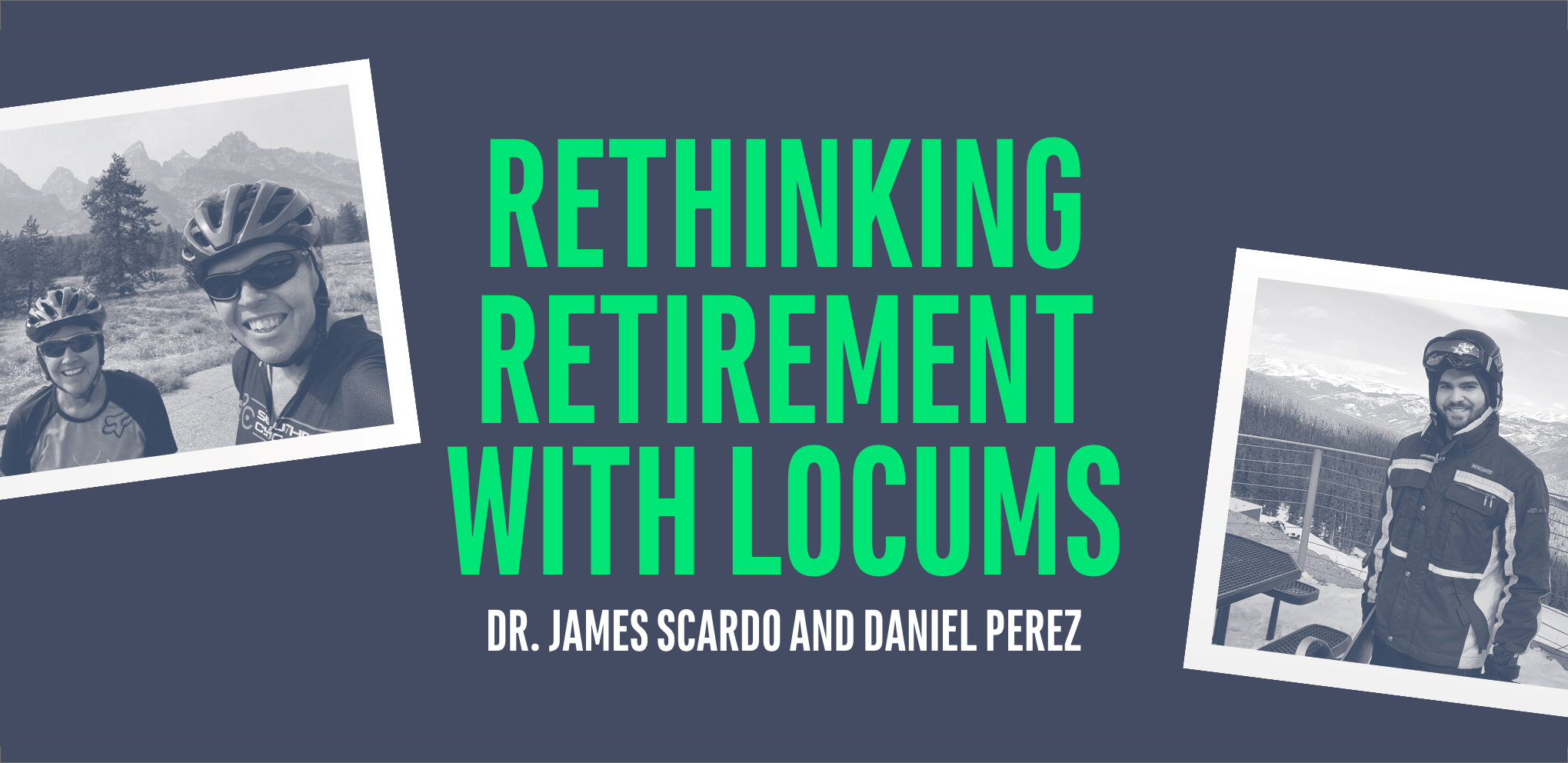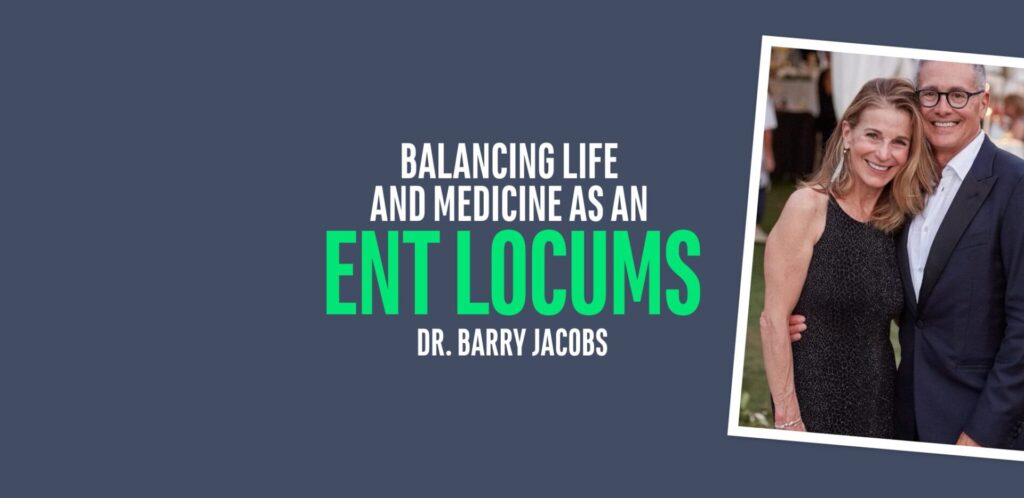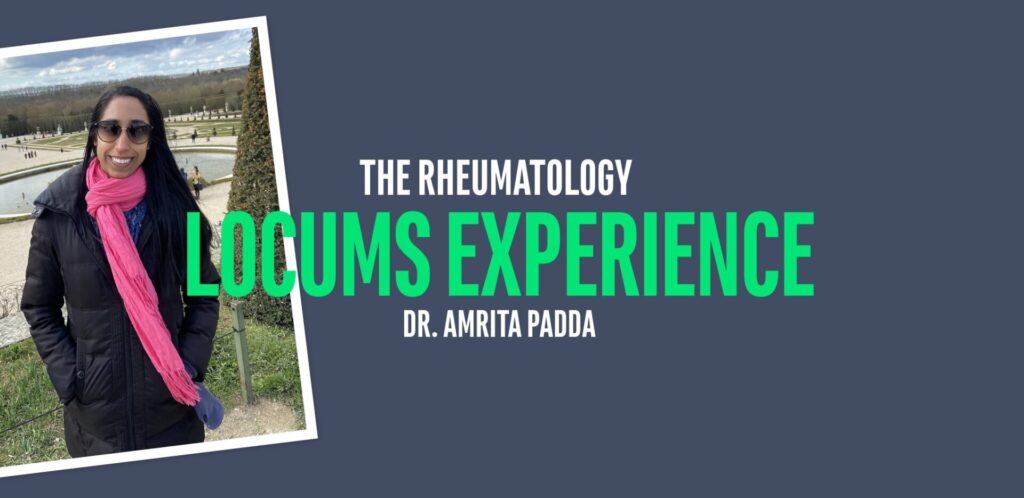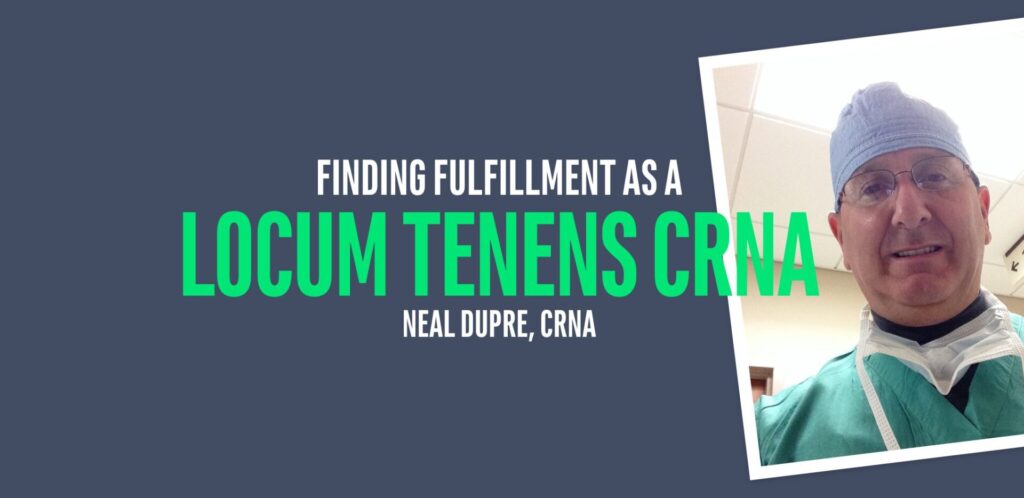More and more physicians are retiring early, many of them due to burnout. But there are other options besides fully retiring: locum tenens can allow you to experience the benefits of retirement while still remaining clinically active.
Dr. James Scardo, a maternal fetal medicine physician, thought he was done with medicine entirely when he retired. But while he didn’t miss the 100-hour work week, he did miss the experience of caring for patients. Luckily, locum tenens was there to fill the gap.
Read on to find out more about Dr. Scardo’s experience, and how he found a balance between loving medicine and enjoying life*:
What went into your decision to try locum tenens after retiring?
I think I retired a little bit earlier than I probably should have, mentally. I was only 57, but I was just burned out. My wife and I decided to start living life, and we retired to a lake in upstate South Carolina. We spent our time hiking, biking, and paddle boarding, but I felt a little bit unsatisfied. And then [Hayes Locums consultant Daniel Perez] called.
Daniel had called before I retired, and at the time I had told him I was quite certain that I would not be interested in locum tenens. At the end of our conversation he said he’d call me back six months after I retired.
One day around that time, I went for a long bike ride, and I was contemplating whether locum tenens was something I should try, because I just didn’t feel satisfied. I had tried doing volunteer work, but I couldn’t practice in my sub-speciality- maternal fetal medicine. I was volunteering in an indigent clinic and really just doing routine gynecology and I just didn’t enjoy it. I was thinking about all of this during that bike ride, and then right as I walked in the door, Daniel called. It was perfect timing.
What were your concerns about locums, and how did your consultant address them?
I didn’t want the same lifestyle I’d had before retiring. I didn’t want to be in the hospital all day every day, and all night every other night. Daniel found something that was essentially a forty-hour work week, instead of a 100-hour workweek. That’s what led to my retirement: for 25 years, I had worked 80 to 100 hours a week, and I just didn’t want to do that again.
What do you think contributed to that burnout? Was it related to your specialty?
I’m sure that had to do with it. As with any specialty, you just can’t turn it off. When you lay down your head at night, you can’t not worry about the patients you saw that day. It was nice to turn it off entirely for a while, but it’s also nice to continue to do it [in a way that’s more sustainable].
I feel like when I look in the mirror every day, that I’ve helped. I’ve helped somebody through a tough time with their pregnancy. When I first retired, I was focused on myself, and it felt kind of selfish. Doing locums helps you get that balance, where you feel like you’re productive, but enjoying life as well.
What were some of the things you were looking for out of a locums assignment?
Daniel found something that was just a daytime job, no night calls. It was an area we had always wanted to visit: a nice little college town with family nearby and great cycling and hiking. visit: It was the perfect fit.
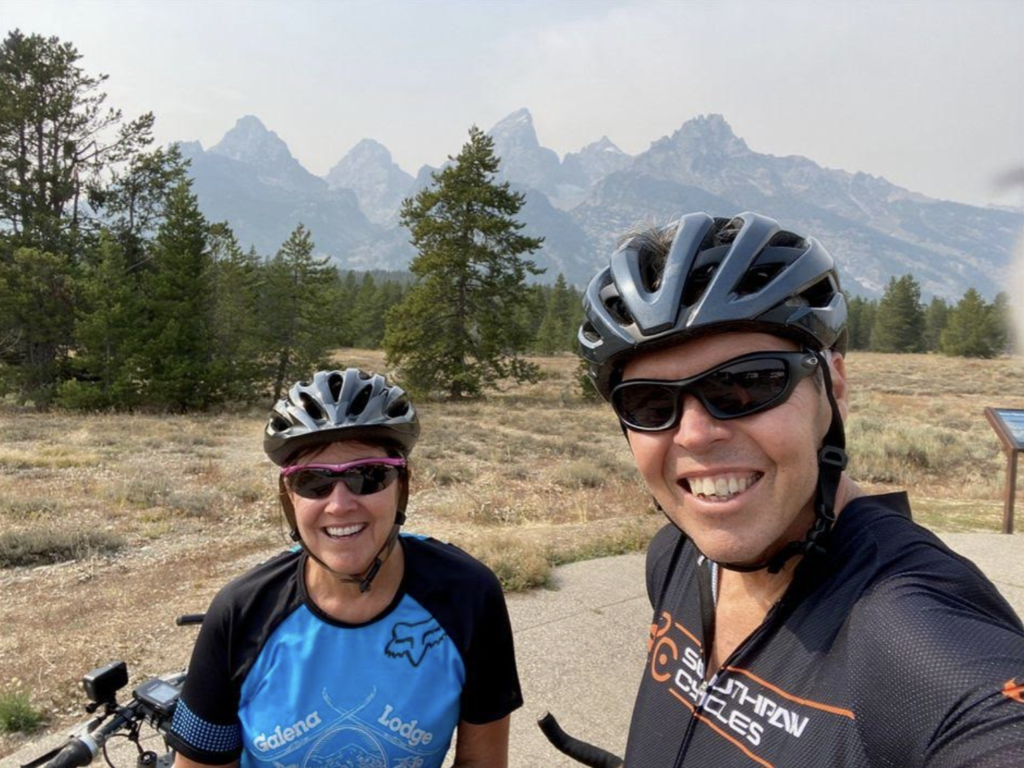
Dr. James Scardo and his wife in Jackson, WY with the Grand Tetons in the background. This was taken during their cross-country bike trip after biking around 50 miles that day.
Tell us more about your first assignment. What was your experience like?
The opportunity was to work in the clinic with residents and medical students, to free up some of the time of the full time faculty there so they could take some time off with their families, and also have time to do academic pursuits like research and publication.
Me being there allows them that freedom, so I felt like I was doing something for them, in addition to something for me.
What made you want to continue practicing locums after that first assignment?
Once I was there, I realized, hey, it’s not as bad as what I used to do. It’s not as time-consuming, and it’s rewarding. The area is great and I still have time off to see my wife, my kids, and my grandkids. It’s just a win-win situation: I have my time at work, and my time off work. My life feels fulfilled.
*This interview has been edited for clarity and length.
